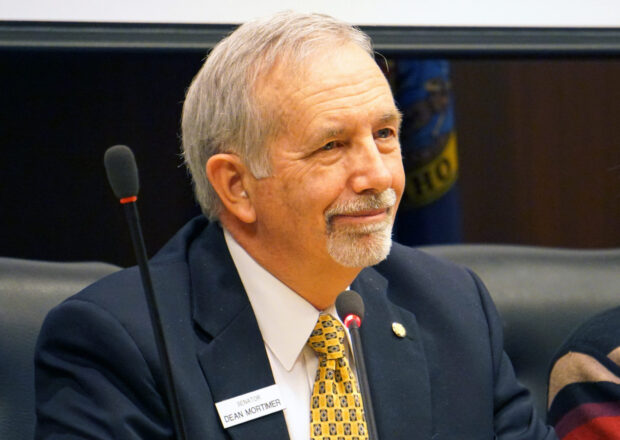State Superintendent of Public Instruction Sherri Ybarra has warned legislators that repealing academic standards without replacing them could jeopardize $250 million in annual federal funding for Idaho’s most at-risk students.

Ybarra shared her concerns via a document analyzing federal education laws. She provided House Speaker Scott Bedke, R-Oakley, and Senate Education Committee Chairman Dean Mortimer, R-Idaho Falls, with the analysis Thursday, her staff said.
Her staff also provided a copy of the analysis to House Education Committee Vice Chairman Ryan Kerby, R-New Plymouth.
“Repealing state academic standards without properly putting in place replacement standards that meet Every Student Succeeds Act (ESSA) requirements may place federal education funding at risk,” the top of the document states.
These latest developments represent Ybarra taking a strong position in one of the 2020 legislative session’s most divisive debates.
Last week, following three divided public hearings, House Education voted to repeal all of Idaho’s K-12 academic standards in math, English and science.
The Senate Education Committee is scheduled to vote on the standards Wednesday afternoon. Under the Legislature’s convoluted rules review process, it takes both legislative chambers to reject a rule such as academic standards.
That means Senate Education controls the outcome. If it votes to approve the standards, that would override the House’s vote to repeal.
In an interview with Idaho Education News, Ybarra said the decision is critical and the stakes are high. The federal funding, she said, supports school lunch programs, students living in poverty and special education students.
“That involves all of our at-risk populations. You’re looking at approximately $250 million appropriated for Idaho that could be at risk,” Ybarra said.
“There have been folks that asked me, ‘So what? What happens?’” Ybarra continued. “That money is for kids, and my No. 1 priority is to make sure kids have what they need in the state of Idaho.”
To be clear, Ybarra is not telling legislators they must retain Common Core-aligned standards.
“I’m not here to defend the reputation of the Common Core,” she said.
Instead, she is encouraging legislators to hold off on an immediate repeal and participate in the regularly scheduled review process that begins in 2021. She asked parents and taxpayers to request a copy of the standards, read them and share any concerns with the State Department of Education or the State Board of Education.
Then, Idaho policymakers can work together to eliminate problematic standards and draft new ones to replace them so Idaho doesn’t go without standards and jeopardize federal funding.
“My question would be, if you throw those out, what else would you do?” Ybarra said. “To continue to make this a political football and put our federal funding at risk and not do the right thing for kids is unacceptable.”
Ybarra attended some public hearings last month over standards, and said many of opponents’ concerns centered on local curriculum decisions and texts read aloud to students.
“Those are all issues at the local level that can be handled that have absolutely nothing to do with the standards,” Ybarra said. “Again, I ask that people get involved with the process. Say exactly what it is, exactly what standard they are concerned with so that we can make those changes the appropriate way.”

It isn’t clear how Senate Education will vote. But Mortimer has already provided the committee with an alternative to an outright and immediate repeal. He drafted a concurrent resolution calling for the Legislature to review the standards throughout the remainder of 2020 and then work together to recommend replacement standards. The Senate passed the resolution Wednesday.
“I want to make it very clear it is extremely important we have content standards in place,” Mortimer said Monday. “It affects our federal funding. It affects all our education professionals.”
Whatever path the Legislature takes, Ybarra urges lawmakers to put students ahead of politics.
“The political answer to this would be just toss them out, put your funding at risk and have nothing in place for kids or for classrooms across the state of Idaho,” Ybarra said. “ That would be the irresponsible way to handle this.”
